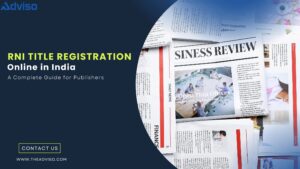Audit for Insurance Companies
Insurance companies in India operate within a strict framework, be it a matter of maintaining finances, serving policyholders, or adhering to audit requirements. Audits play a vital role in plugging compliance gaps, ensuring stability, reliability, and transparency for insurers. From data management, claim settlement, record keeping, and finance administration, to IT capabilities, there are numerous facets that can undergo regulatory audits performed by IRDAI. Insurers can leverage regular internal audits to keep things afloat. Let’s understand the significance of audits for insurance companies and their legal implications.
Understanding Audits for Insurance Companies
Audit for insurance companies refer to a systematic assessment of various factors including financial records, internal controls, IT systems, data management, record keeping, and grievance control. The positive audit feedback implies that the insurer is compliant and thus has required operational capabilities. Besides, it also showcases the insurer’s potential to serve the stakeholders and policyholders effectively. A systematic audit can unleash the following areas, reinforcing the firm’s potential to operate.
- Policyholder reserves
- Claim payouts
- Investment portfolios
- Operational risk management
- Regulatory adherence
Insurance companies are compliance-intensive businesses that operate in a dynamic environment, making audits a vital tool for reinforcing reliability and accountability.
Types of Audits for Insurance Companies
There is no such thing as a standardized audit for insurers in India. There are several facets that need to be examined thoroughly to reinforce compliance. Below are the types of audits that cater to different aspects of the insurance company, assessing the bottlenecks and potential gaps.
a. Financial Audits
Financial audits, as the name suggests, examine the financial prowess of the company by assessing different records such as balance sheets, profit and loss statements, etc. While auditing, auditors check whether or not these documents comply with the underlying accounting standards.
b. Compliance Audits
These audits confirm whether or not the insurer meets the industry-specific norms such as solvency requirements and data protection laws.
c. Operational Audits
Operational audits examine how effectively an insurer pursues internal endevours. It can help pinpoint potential gaps and bottlenecks within the internal environment.
d. IT Audits
IT infrastructure significantly influences the company’s day-to-day operation and growth. Since IT resources address many areas including data management, cybersecurity, etc, maintaining its standards within the purview of underlying norms is paramount. The IT audit helps pinpoint the anomalies with the system, helping insurers to stay afloat quality and compliance-wise.
e. Risk-Based Audits
High-risk areas like claims management or investment portfolios require stringent oversight to stay compliant. The risk-based audits keep the legal essence of such areas intact by identifying potential risks.
Key Components of Audit for Insurance Companies
Effective audit for insurance companies essentially entail the given components.
Policy Review
Policies are examined to ensure error-free and rational underwriting, pricing, and documentation.
Claims Assessment
Claims processes undergo assessment to check if they are accurate, time-bound, and compliant.
Risk Management
Assessing how effectively the company is managing market and financial-related risks falls under risk management.
Financial Analysis
Auditors investigate the company’s financial records, ensuring they are in line with regulatory norms and accounting principles.
Internal Controls
Robust internal controls are of utmost importance to keep potential errors and fraudulent activities at bay. Auditors check these controls to verify how sound they are.
Regulatory Framework Influencing Audit for Insurance Companies
Insurance companies invite myriad compliances, each addressing a distinct area. Essentially, the following legislations come into play when it comes to an insurer’s audit.
1) The Insurance Act, 1938 as amended by the Insurance Laws (amendment act),2015 including Insurance Rules, 1939
2) The Insurance Regulatory and Development Authority of India Act, 1999 as Amended by the Insurance Laws (Amendment ) Act, 2015
3) Regulations Framed under the IRDAI Act 1999
4) The Companies Act 2013
5) IRDA Investment Regulations as amended from time to time
Knowing these legislations is paramount to seamlessly create an audit checklist.
Why is it Daunting to Perform Audit for Insurance Companies?
Auditing insurance companies is a daunting task as it invites a plethora of diverse compliances. Besides, the following makes an insurer’s audit even more challenging.
a. Complex Financial Structures
Some insurers leverage reinsurance treaties to compensate for repayment flaws. Besides, they have a diverse investment portfolio that adds to the company’s growth. Although these arrangements sound rational, managing these can overly complicate the financial endevours.
b. Dynamic Regulations
One of the biggest daunting challenges of running an insurance company is coping with the evolving norms. These can turn audits into a cumbersome affair.
c. Data Volume and Complexity
Insurers deal with massive datasets related to internal control, policyholders, claims, etc. This often incites control haywire, leading to mediocre management and terrible decision-making. Advanced analytical tools can resolve these issues if used right, paving the way to seamless auditing.
d. Fraud Detection
Some insurance frauds can take months before they get detected, leading to compliance haywire and mismanagement. Auditors need to thoroughly scrutinize each facet to identify anomalies, making the overall assessment a daunting affair.
Benefits of Audit for Insurance Companies
Auditing can lend several benefits to the insurers if executed as per the IRDAI’s checklist. Some notable advantages include:
Improved credibility
A comprehensive auditing can steer the company to the right direction from a regulatory standpoint, ensuring adherence to IRDAI norms. This can lead to improved credibility build-up and market presence.
Enhanced Financial Accuracy
Keeping the company’s finances intact can reinforce trust among the stakeholders. A better finance is a solid indicator of performance and operational capabilities. A regular audit can reshape the way the company manages its finances by keeping costly errors at bay.
c. Operational Efficiency
An audit can be a key to detecting lethargic processes and sub-standard business practices, ensuring improved cost-saving and customer service.
d. Fraud Detection
Regular audits keep fraudulent activities at bay, ensuring the company stays on the right track. This can ensure the utmost protection for company assets and policyholder interests.
e. Investor Confidence
Transparent auditing practices encourage investors to have more trust in the company’s operation, paving the way to increased funding and enhanced scalability.
Conclusion
Audits for insurance companies are a key to success and business longevity. From detecting operational flaws to financial hiccups, auditing is not just a best business practice; it is an absolute necessity. Insurers that find it daunting to pursue regular audits can find themselves in peril of strict regulatory penalties. That’s where a trusted agency like Adviso can make a game-changing difference. From streamlining internal processes to keeping finances intact, Adviso can help insurers steer clear of the regulatory hurdles with utmost clarity.
Read Our Article: Understanding IRDAI Guidelines for Claim Settlement




